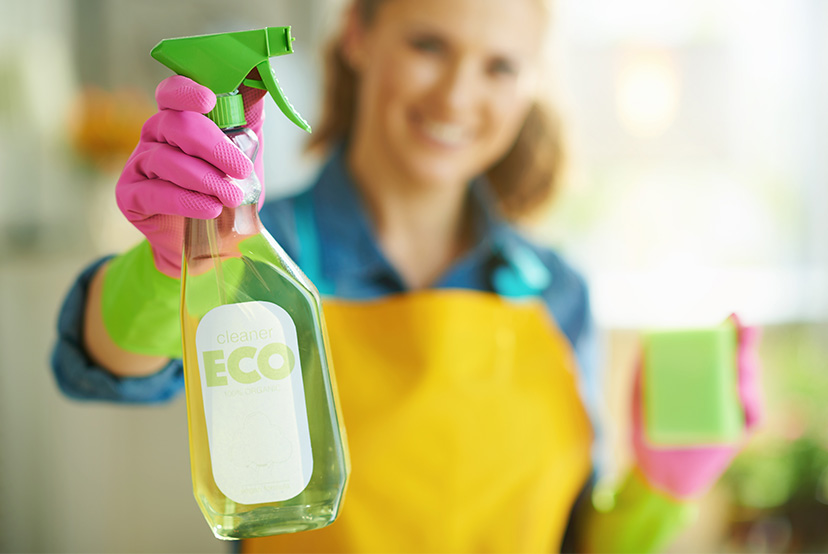Healthy takes on a whole new meaning when you have a newborn! Babies can get sick more easily because their immune systems are still developing. This is why it’s important to be especially careful during the first six to eight weeks of your baby’s life.

A Healthy Home for Your New Baby
- Home
- Live Well Blog
- A Healthy Home for Your New Baby
October 12, 2022
Infant
THE SECRET TO A HEALTHY LIFE IS IN YOUR HANDS … SO WASH THEM!
- Always wash your hands with clean, running water and soap for 20 seconds before handling your baby.
- Be sure to lather the back of your hands, between your fingers, and especially under your nails where dirt and germs can hide.
- Rinse and dry your hands using a clean towel, paper towel or air-dry them.
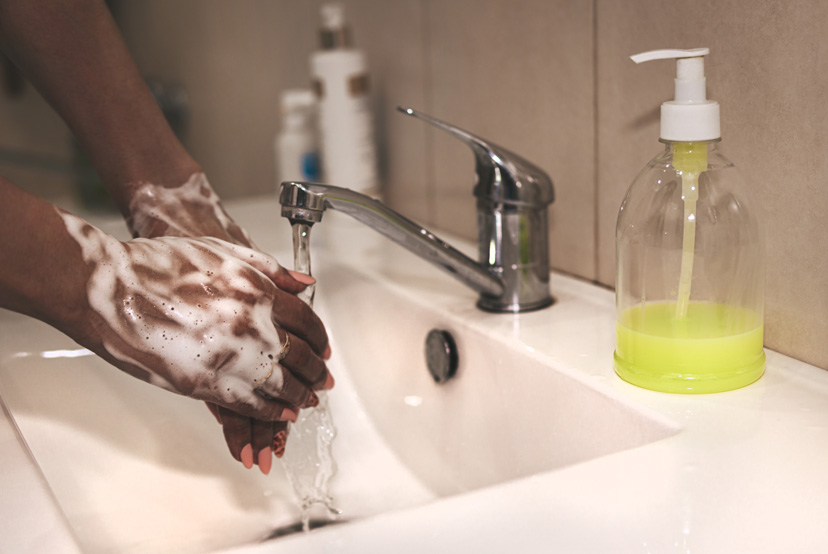
SOAPS
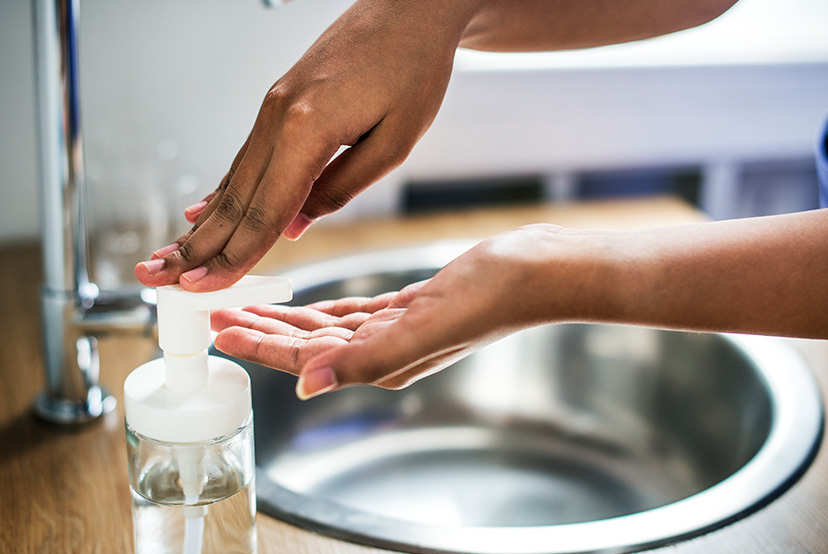
- Dye-free, fragrance-free soaps that don’t contain antibacterial substances are best.
- Real cleanness does not smell; most scents are from added chemicals.
- Read labels carefully; look for products that are free from “phthalate” and “parabens”. These chemicals can be harmful to babies.
HEALTHY FEEDING
- Always wash your hands before nursing or preparing bottles.
- If you use a bottle, wash and rinse with hot soapy water, using a brush. Squeeze and pour water through the nipple hole to flush out any trapped milk. To sanitize, place bottles, nipples, and rings in boiling water for 5 minutes. Use clean tongs to remove and let them air dry. You can also sanitize bottles, nipples, and rings in the top rack of the dishwasher.
- Use glass bottles or polypropylene (marked with recycling code #5) plastic bottles. Avoid bottles labeled “PC” on the bottom. Throw away bottles that look old, scratched, or filmy.
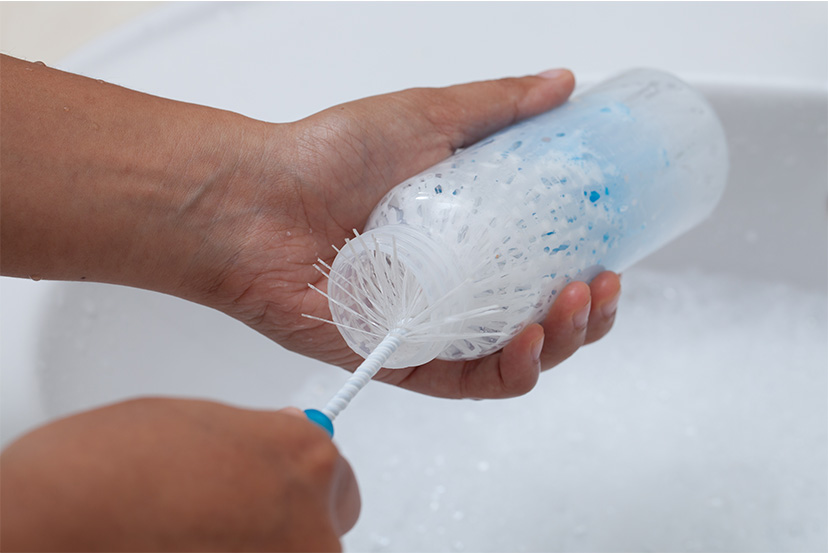
- Never warm your baby’s feeding in the microwave — it can burn baby’s mouth and destroy healthy nutrients in human milk. Instead put the bottle in a bowl of hot water or run hot water over it.
- Because human milk has germ-fighting properties, it can be kept at room temperature up to 4 hours and in the refrigerator for 72 hours.
- Prepared formula can only be kept at room temperature up to 1 hour and in the refrigerator for up to 24 hours. Use cold tap water that has been boiled one minute to prepare formula for your baby’s first three months, or until your doctor says it is safe not to.
- Throw away formula or human milk leftover in the bottle after a feeding.
Speaking of healthy feeding, did you know human milk contains antibodies to fight the germs you and your baby are exposed to? It’s true! Babies who are given human milk are less likely to have:
- Allergies
- Asthma
- Illnesses and hospital stays
- Ear Infections
- Diarrhea
- Stomach Infections
SAFE SLEEP
- The safest place for your baby to sleep is in your room, but not in the same bed. Put your baby’s crib near your bed to make nighttime feedings easier.
- Remember, “Back to Sleep, Tummy to Play.” Putting your baby to sleep on their back is recommended to prevent Sudden Infant Death Syndrome (SIDS)—make sure you tell family, day care providers and other people who may help with the baby.
- Don’t put anything in the bed with your baby like pillows, stuffed animals, bumper pads or blankets. “Bare is Best!” for your baby’s sleep environment.

PREVENT ALLERGIES
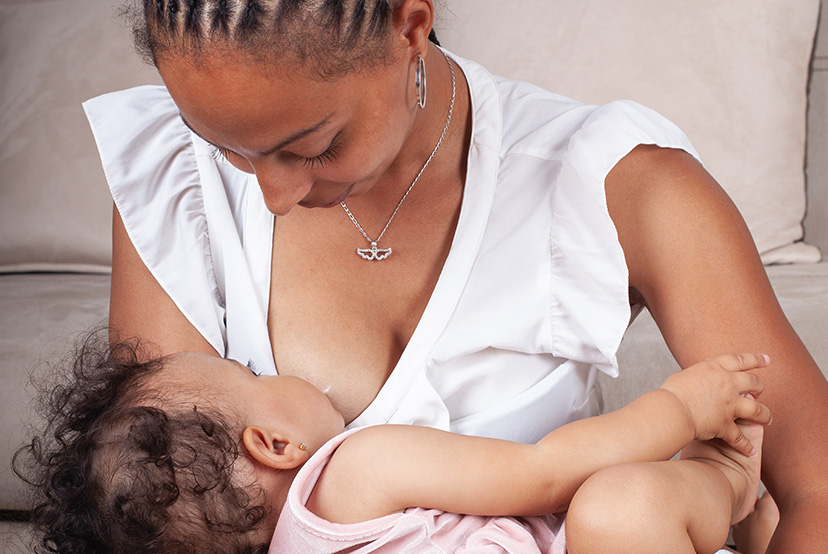
- Chest-feed your baby exclusively for at least 4 to 6 months.
- Avoid giving your baby any solid food until they are at least 4 to 6 months old.
- Avoid air fresheners, candles, lotions and soaps that have fragrance added.
- Use a zippered mattress cover on baby’s mattress to keep dust mites away.
- Wash sheets weekly in hot water.
OTHER TIPS
- Keep your baby away from anyone who might be sick.
- Don’t allow anyone to smoke inside and especially not near your baby. Chemicals from smoke stick to clothing, so avoid letting anyone hold your baby that has recently smoked.
- Watch out for harsh cleaning products, which can cause irritation. Look for “green”, “nontoxic” cleaners, or products that say, “biodegradable,” “phosphate-free,” “VOC-free,” or “solvent-free.”
